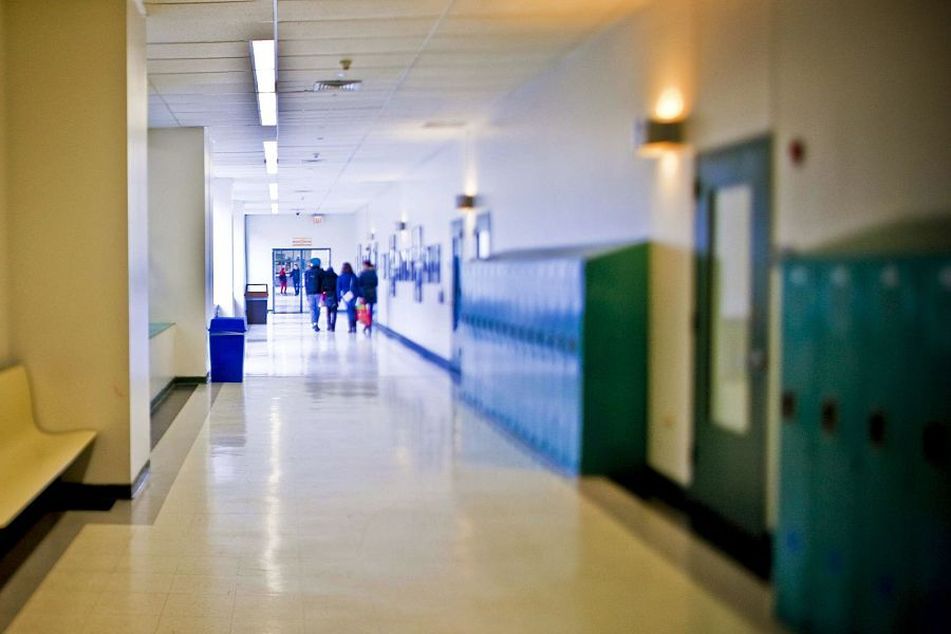Providing the building blocks of financial literacy training

The pandemic has reminded us that too many Americans are being left behind economically, and the stats for financial education demonstrate that is happening in the classroom too.
Let me tell you a little about my journey with Jessica Endlich to found Next Gen Personal Finance, a nonprofit organization dedicated to expanding access to personal finance and financial literacy training everywhere.
I was one of the fortunate few who had Depression-era parents who taught me to fear credit, love savings, get educated and serve the community. I had my first job at 7 (dog walker), my first CD (that is, certificate of deposit) at 10, and had saved $20,000 by the time I entered college. Regarding this idea of service, my Mom, while managing a household with six children, never saw a volunteer opportunity she didn’t pour her heart and soul into: Girl Scout troop leader, story hour reader and volunteer at a soup kitchen, to name a few.
So a decade ago, given the opportunity to teach a personal finance class, I channeled my mother’s volunteer spirit and said, “Yes!” Creating and then teaching a 25-hour course to three sections of ninth graders at Eastside College Prep in East Palo Alto, California, was the most terrifying, exhausting and exhilarating experience I’ve ever experienced.
Over six weeks, these students, many the first in their families to aim for college, analyzed charts showing the value of education, compared sticker and net prices for colleges they wanted to attend, created a budget for their 25-year-old selves and invested in a stock that they tracked over their high school careers.
Despite the tyro volunteer teacher leading them, the students’ level of engagement and interest grew week by week. Then a surprising thing happened. Their parents started emailing me to learn more, and I saw how transformative this class could be beyond the classroom walls. When my subsequent research uncovered the fact that students were taking a personal finance course in high school in only five states, I felt motivated to act.
So in 2014, co-founder Jessica Endlich and I started a nonprofit, Next Gen Personal Finance. Our strategy, developed over time, places teachers at the center:
1. Provide educators with curriculum that students love and is easy to implement.
2. Deliver professional development that builds teachers’ confidence and content knowledge.
3. Success with No. 1 and No. 2 will lead teachers to advocate for more personal finance courses in their school community.
Seven years later, 44,000 teachers in all 50 states and more than a dozen countries use NGPF curriculum, arcade games and other activities. On the professional development front, teachers have shown their eagerness to learn and collaborate with their peers.
Since the pandemic struck in March 2020, more than 6,000 teachers have invested 130,000 hours to learn more about investing, taxes, behavioral finance, Bitcoin, payment apps and the GameStop frenzy, to name just a few of our topics. While these numbers may seem impressive, the NGPF team and the community of educators feel an urgency to do more. The pandemic has reminded us that too many Americans are being left behind economically, and the stats for financial education demonstrate that is happening in the classroom too.
I’m usually a sentence or two into my spiel about co-founding a nonprofit organization focused on financial education when I’m interrupted with, “That’s a class I wish I had in school” or “Can you teach my children/grandchildren?”
The statistics, the quizzes and the behaviors all point to a lack of financial capability, a term I prefer to literacy since there is nothing basic about understanding how to manage money. Talk to adults, high school students, parents and community members, and almost all would agree that:
1. This is important.
2. This should be taught.
Peruse the results of survey after survey, and then more surveys, and it’s clear that there’s overwhelming support. So why are so few high school students guaranteed to have taken a personal finance course before they cross that graduation stage?
Our 2021 Report on Access to Financial Education to be released later this month finds that only 1 in 5 students (20%) currently graduates from a high school where every student is guaranteed to take a personal finance course. One in 3 students (33%) attend a high school where no personal finance courses are available.
We have Mission 2030 set as the Big Hairy Audacious Goal for this community of personal finance educators. We strive in partnership to guarantee that by 2030, every student will cross that high school graduation stage with the financial skills to thrive in the future. How? By taking a one-semester personal finance course that is relevant, up-to-date and engaging.
Entrepreneurs are “glass half-full” people, so let me share with you signs of positive momentum. Here are a few, including grassroots stories that inspire us to do more:
• 25 states and the District of Columbia have introduced bills in their state legislatures that focus on increasing access to financial education.
• There are 1,400-plus “Gold Standard” schools (outside of the five states mentioned earlier), where a teacher, a student, a board member, a community member, a principal or a superintendent stood up and said personal finance needs to be a priority in our community.
• Sue Comparato of Swampscott High School in Massachusetts advocated for more than a decade to make it happen.
• Bill Joy, a long-term substitute teacher at Lucy Beckham High School in South Carolina with 25 years of corporate experience, made it happen there.
So how can you make a difference in this fight for financial literacy training? Here are some ideas on how to get started. Talk about it at home with your children or grandchildren. Amplify your impact by meeting with the local high school principal or board members to tell them you believe that all students deserve to learn this.
NGPF resources can help you make the case. When they complain about cost, let them know that all of this curriculum and professional development are provided at no cost. NGPF is funded through an endowment that allows us to offer all of our services at no cost.
Together, we can accomplish #Mission2030, when all students will cross the graduation with the financial skills they need to thrive in the future. What a legacy that will be for the next generation!
[More: Coping with a difficult year: How your expert advice can change a life]
Tim Ranzetta is co-founder of Next Gen Personal Finance.
Planners boost pro bono efforts amid pandemic
Learn more about reprints and licensing for this article.




